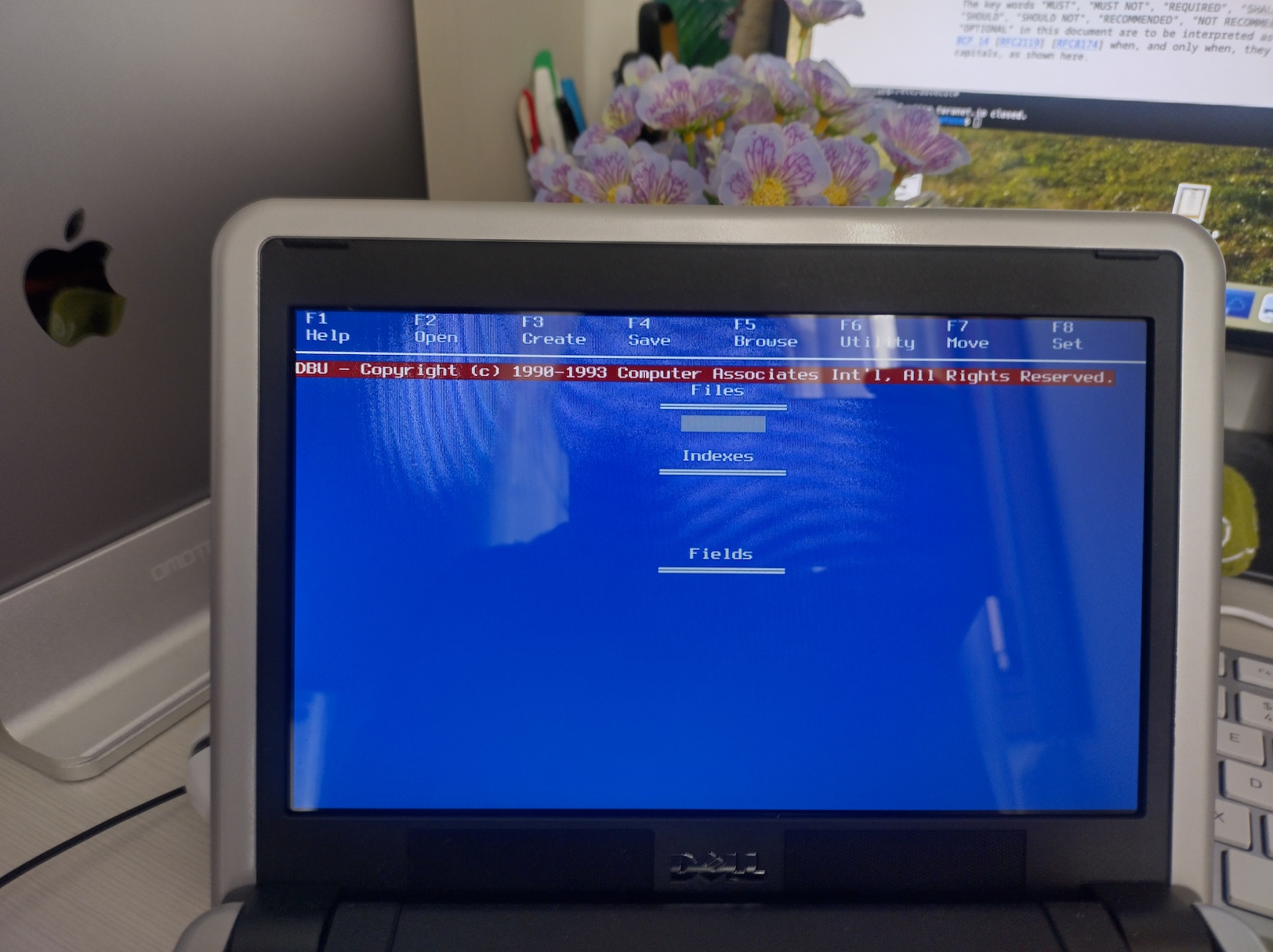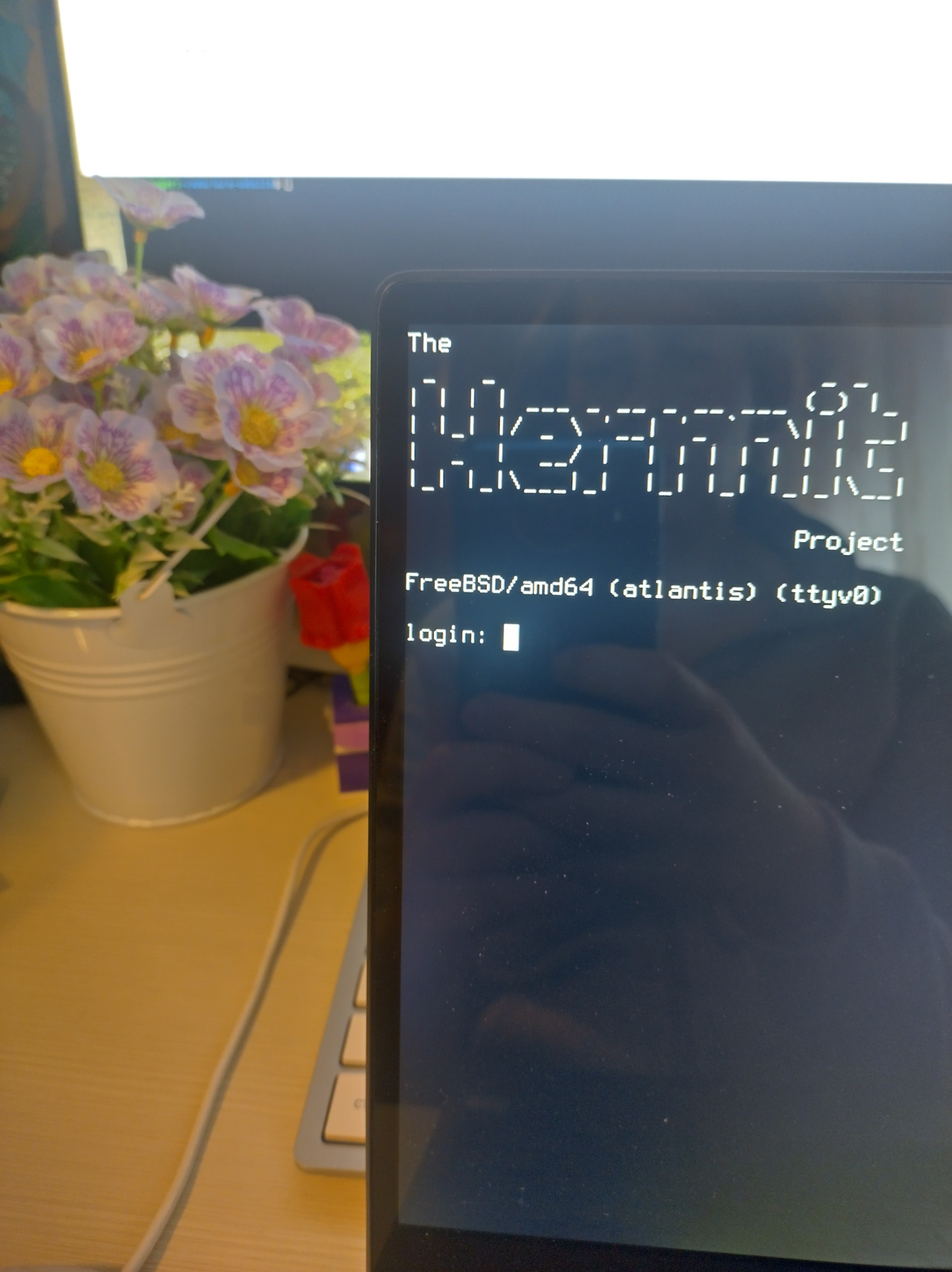The Hermit Project - Part 3
In the previous episode of “The Hermit Project”, Tara installed FreeBSD on a Dell Inspiron Mini 9 and is thinking about becoming a digital hermit. I always wanted to sound like a TV series, LOL.
I immediately loved running the nano editor in a virtual terminal. It was just me and the thoughts I wanted to express. And, despite being over 10 years old and just a 9" screen, the Dell netbook has a fabulous keyboard that I could use for hours. And I didn’t regret the screen size at all. It’s a pity nobody is designing keyboards like that anymore (or perhaps I’m unaware of anyone).
Let me go tangential for a few lines. I was a big fan of the DOS software dBase III Plus when I was a little girl. For the youngest, it was a database software that might be seen as a precursor of Microsoft Access. The databases were stored in DBF files, and their indexes were in NTF files. It was pretty comfortable to have an entire database that could fit a floppy disk (yeah, I’m that old. So what??). That has become my favourite way to create databases and manage data for me and acquaintances… and some “unofficial” jobs.
At first, I used “assist”, the interactive version of dBase III Plus, that guided you in creating database structures, forms and reports. But it also had a powerful programming language to develop customised and standalone programs using their runtime, which I used in a more advanced stage. As a natural next step, although I am fond of systems and telecommunications, I eventually became a Clipper programmer. Clipper was a compiler that used the very same programming language (it was called xBase family), and -after many years- an open-source version named Harbour came out. I always loved the way xBase could handle TUIs and field masks and validations, and I am still searching for that TUI experience.
Why am I sharing this? Because the first thing I do when I try a new operating system or processor family is to test if Harbour and its utilities are compiling on that platform. So I did it with FreeBSD 13.2 32-bit and the Dell Mini 9: here’s a picture of the netbook running the Database Utility (DBU) coming from Clipper.

Anyway, enough of being tangential, let’s go back to our original story. A couple of weeks passed since I installed and used the Mini 9, and it was already mid-December 2023. I decided to spend my Christmas differently and go to Innsbruck. I thought that meine berge (my mountains) and some Tirolean food might provide the comfort I so much needed.
I wanted to bring a laptop with me, but I wanted to avoid being tempted to check social media or my mail or being distracted. Yet, I am so paranoid… ahem, conscientious, that I also wanted the possibility of accessing my mail and my systems if I needed to.
The Dell Mini would have been the perfect choice, right? Right?? Yes, but … it comes with two problems. The first, more practical one is the battery: I believe I bought that laptop in 2009, so the battery is dead and useless unless plugged into a power outlet. And no, I’m a total disaster with soldering, so replacing the battery was out of the equation. But more importantly, the laptop contains my journal. As it’s formatted in UFS, I don’t want anybody to potentially access my data by stealing the device. Yes, I could have reinstalled it with Geli, but I didn’t.
A few months before, I bought a Chuwi CoreBook Pro laptop hanging around to experiment with what fits me (I might talk about this in a separate post). Despite being something cheap, I bought it on Amazon for the sake of “I don’t care if I happen to damage it” it turned out to be pretty handy. It’s a 13" ultrabook i3 with 8 GB of RAM, 256GB SSD and an m2 slot that I filled with a 1TB NVME. It comes preinstalled with Windows, but … it’s just there. I installed Linux Mint on the NVME drive and I use it all the times. Now, I have decided to re-partition the built-in SSD and make space for FreeBSD.
Keep in mind that a newbie in FreeBSD, but I think the default installation with Geli wants to wipe the disk, which is not what I wanted to do. So, I opted to install FreeBSD on ZFS and create an encrypted ZFS filesystem for the home directory. I know it’s not the same privacy that Geli can provide, but as long as my journal and home directory are safe, I’m ok with that. It’s somehow a similar level of privacy that Linux provide with eCryptfs on the home directory.
The Chuwi was the perfect fit for both: I boot on FreeBSD when I need to be alone with my thoughts, and I could potentially boot Linux when I want to check emails or other “conventional” work stuff.
Here’s version 1 of “The Hermit Projet”, ready to go to Innsbruck with me for Christmas 2023:
